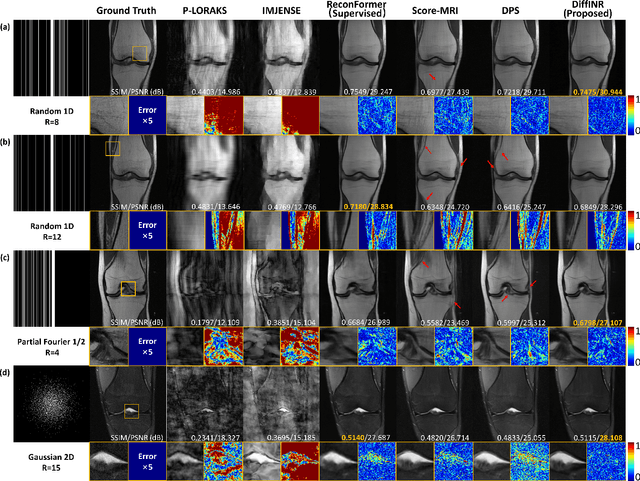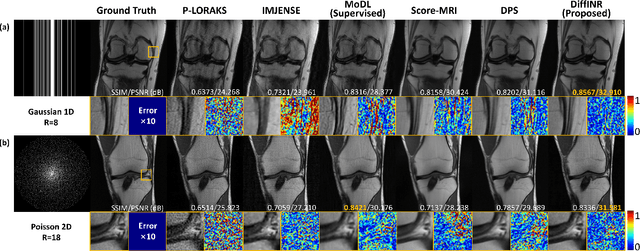Jiayue Chu
Highly Accelerated MRI via Implicit Neural Representation Guided Posterior Sampling of Diffusion Models
Jul 03, 2024


Abstract:Reconstructing high-fidelity magnetic resonance (MR) images from under-sampled k-space is a commonly used strategy to reduce scan time. The posterior sampling of diffusion models based on the real measurement data holds significant promise of improved reconstruction accuracy. However, traditional posterior sampling methods often lack effective data consistency guidance, leading to inaccurate and unstable reconstructions. Implicit neural representation (INR) has emerged as a powerful paradigm for solving inverse problems by modeling a signal's attributes as a continuous function of spatial coordinates. In this study, we present a novel posterior sampler for diffusion models using INR, named DiffINR. The INR-based component incorporates both the diffusion prior distribution and the MRI physical model to ensure high data fidelity. DiffINR demonstrates superior performance on experimental datasets with remarkable accuracy, even under high acceleration factors (up to R=12 in single-channel reconstruction). Notably, our proposed framework can be a generalizable framework to solve inverse problems in other medical imaging tasks.
 Add to Chrome
Add to Chrome Add to Firefox
Add to Firefox Add to Edge
Add to Edge